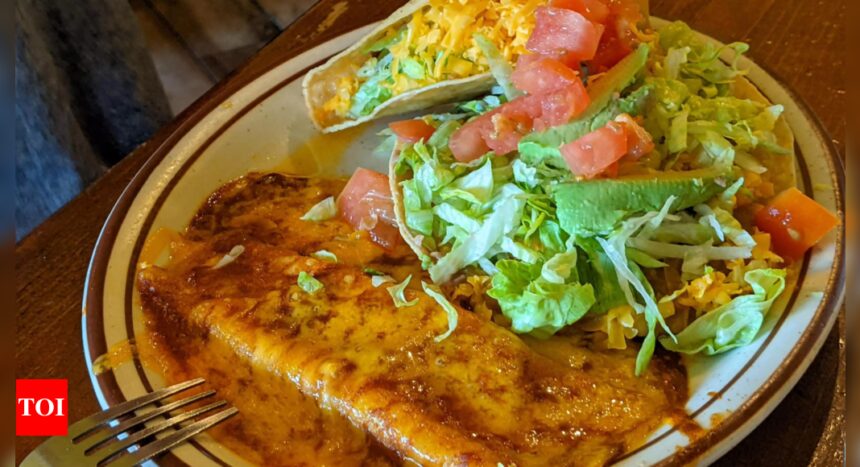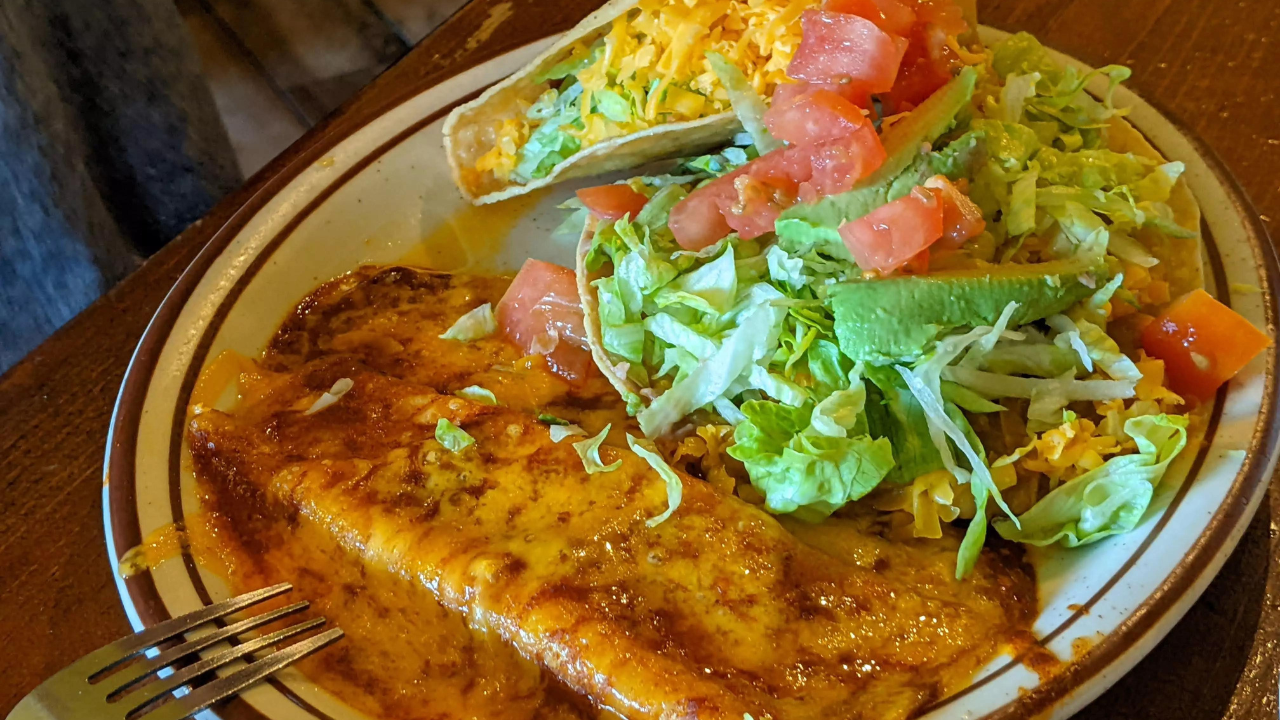[ad_1]
NEW YORK: It’s a practice that’s about as American as apple pie – accusing immigrant and minority communities of engaging in bizarre or disgusting behaviors when it comes to what and how they eat and drink, a kind of shorthand for saying they don’t belong. The latest iteration came at Tuesday’s presidential debate, when former President Donald Trump spotlighted a false online tempest around the Haitian immigrant community of Springfield, Ohio.He repeated the groundless claim previously spread by his running mate, JD Vance, that the immigrants were stealing dogs and cats, the precious pets belonging to their American neighbors, and eating them. The furor got enough attention that officials had to step in to refute it, saying there was no credible evidence of any such thing.
But while it might be enough to turn your stomach, such food-based accusations are not new. Far from it.
Food-related scorn and insults were hurled at immigrant Chinese communities on the West Coast in the late 1800s as they started coming to the United States in larger numbers, and in later decades spread to other Asian and Pacific Islander communities like Thai or Vietnamese. As recently as last year, a Thai restaurant in California was hit with the stereotype, which caused such an outpouring of undeserved vitriol that the owner had to close and move to another location.
Behind it is the idea that “you’re engaging in something that is not just a matter of taste, but a violation of what it is to be human,” says Paul Freedman, a professor of history at Yale University. By tarring Chinese immigrants as those who would eat things Americans would refuse to, it made them the “other.”
In the US, foods can be flashpoints
Other communities, while not being accused of eating pets, have been criticized for the perceived strangeness of what they were cooking when they were new arrivals, such as Italians using too much garlic or Indians too much curry powder. Minority groups with a longer presence in the country were and are still not exempt from racist stereotypes – think derogatory references to Mexicans and beans or insulting African Americans with remarks about fried chicken and watermelon.
“There’s a slur for every almost every ethnicity based on some kind of food that they eat,” says Amy Bentley, professor of nutrition and food Studies at New York University. “And so that’s a very good way of disparaging people.”
That’s because food isn’t just sustenance. Embedded in human eating habits are some of the very building blocks of culture – things that make different peoples distinct and can be commandeered as fodder for ethnic hatred or political polemics.
“We need it to survive, but it’s also highly ritualized and highly symbolic. So the birthday cake, the anniversary, the things are commemorated and celebrated with food and drink,” Bentley says. “It’s just so highly integrated in all parts of our lives.”
And because “there’s specific variations of how humans do those rituals, how they eat, how they have shaped their cuisines, how they eat their food,” she adds, “It can be as a theme of commonality … or it can be a form of distinct division.”
It’s not just the what. Insults can come from the how as well – eating with hands or chopsticks instead of forks and knives, for example. It can be seen in class-based bias against poorer people who didn’t have the same access to elaborate table settings or couldn’t afford to eat the same way the rich did – and used different, perhaps unfamiliar ingredients out of necessity.
Such disparagement can extend directly into current events. During the Second Gulf War, for example, Americans angry at France’s opposition of the U.S. invasion of Iraq started calling french fries “freedom fries.” And a much-used insulting term in the United States for Germans during the first two world wars was “krauts” – a slam on a culture where sauerkraut was a traditional food.
“Just what was wrong with the way urban immigrants ate?” Donna R. Gabaccia wrote in her 1998 book, “We Are What We Eat: Ethnic Food and the Making of Americans.” In reviewing attitudes of the early 20th century and its demands for “100% Americanism,” she noted that “sauerkraut became victory cabbage'” and one account complained of an Italian family “still eating spaghetti, not yet assimilated.”
The expanding food culture provides continuing fodder
Such stereotypes have persisted despite the fact that the American palate has significantly expanded in recent decades, thanks in part to the influx of those immigrant communities, with grocery stories carrying a wealth of ingredients that would baffle previous generations. The rise of restaurant culture has introduced many diners to authentic examples of cuisines they might have needed a passport to access in other eras.
After all, Bentley says, “when immigrants migrate to a different country, they bring their foodways with them and maintain them as they can. … It’s so reminiscent of family, community, home. They’re just really material, multisensory manifestations of who we are.”
Haitian food is just one example of that. Communities like those found in New York City have added to the culinary landscape, using ingredients like goat, plantains and cassava.
So when Trump said that immigrants in Springfield – whom he called “the people that came in” – were eating dogs and cats and “the pets of the people that live there,” the echoes of his remarks played into not just food but culture itself.
And even though the American palate has broadened in recent decades, the persistence of food stereotypes – and outright insults, whether based in fact or completely made up – shows that just because Americans eat more broadly, it doesn’t mean that carries over into tolerance or nuance about other groups.
“It’s a fallacy to think that,” Freedman says. “It’s like the tourism fallacy that travel makes us more understanding of diversity. The best example right now is Mexican food. Lots and lots of people like Mexican food AND think that immigration needs to be stopped. There’s no link between enjoyment of a foreigner’s cuisine and that openness.”
But while it might be enough to turn your stomach, such food-based accusations are not new. Far from it.
Food-related scorn and insults were hurled at immigrant Chinese communities on the West Coast in the late 1800s as they started coming to the United States in larger numbers, and in later decades spread to other Asian and Pacific Islander communities like Thai or Vietnamese. As recently as last year, a Thai restaurant in California was hit with the stereotype, which caused such an outpouring of undeserved vitriol that the owner had to close and move to another location.
Behind it is the idea that “you’re engaging in something that is not just a matter of taste, but a violation of what it is to be human,” says Paul Freedman, a professor of history at Yale University. By tarring Chinese immigrants as those who would eat things Americans would refuse to, it made them the “other.”
In the US, foods can be flashpoints
Other communities, while not being accused of eating pets, have been criticized for the perceived strangeness of what they were cooking when they were new arrivals, such as Italians using too much garlic or Indians too much curry powder. Minority groups with a longer presence in the country were and are still not exempt from racist stereotypes – think derogatory references to Mexicans and beans or insulting African Americans with remarks about fried chicken and watermelon.
“There’s a slur for every almost every ethnicity based on some kind of food that they eat,” says Amy Bentley, professor of nutrition and food Studies at New York University. “And so that’s a very good way of disparaging people.”
That’s because food isn’t just sustenance. Embedded in human eating habits are some of the very building blocks of culture – things that make different peoples distinct and can be commandeered as fodder for ethnic hatred or political polemics.
“We need it to survive, but it’s also highly ritualized and highly symbolic. So the birthday cake, the anniversary, the things are commemorated and celebrated with food and drink,” Bentley says. “It’s just so highly integrated in all parts of our lives.”
And because “there’s specific variations of how humans do those rituals, how they eat, how they have shaped their cuisines, how they eat their food,” she adds, “It can be as a theme of commonality … or it can be a form of distinct division.”
It’s not just the what. Insults can come from the how as well – eating with hands or chopsticks instead of forks and knives, for example. It can be seen in class-based bias against poorer people who didn’t have the same access to elaborate table settings or couldn’t afford to eat the same way the rich did – and used different, perhaps unfamiliar ingredients out of necessity.
Such disparagement can extend directly into current events. During the Second Gulf War, for example, Americans angry at France’s opposition of the U.S. invasion of Iraq started calling french fries “freedom fries.” And a much-used insulting term in the United States for Germans during the first two world wars was “krauts” – a slam on a culture where sauerkraut was a traditional food.
“Just what was wrong with the way urban immigrants ate?” Donna R. Gabaccia wrote in her 1998 book, “We Are What We Eat: Ethnic Food and the Making of Americans.” In reviewing attitudes of the early 20th century and its demands for “100% Americanism,” she noted that “sauerkraut became victory cabbage'” and one account complained of an Italian family “still eating spaghetti, not yet assimilated.”
The expanding food culture provides continuing fodder
Such stereotypes have persisted despite the fact that the American palate has significantly expanded in recent decades, thanks in part to the influx of those immigrant communities, with grocery stories carrying a wealth of ingredients that would baffle previous generations. The rise of restaurant culture has introduced many diners to authentic examples of cuisines they might have needed a passport to access in other eras.
After all, Bentley says, “when immigrants migrate to a different country, they bring their foodways with them and maintain them as they can. … It’s so reminiscent of family, community, home. They’re just really material, multisensory manifestations of who we are.”
Haitian food is just one example of that. Communities like those found in New York City have added to the culinary landscape, using ingredients like goat, plantains and cassava.
So when Trump said that immigrants in Springfield – whom he called “the people that came in” – were eating dogs and cats and “the pets of the people that live there,” the echoes of his remarks played into not just food but culture itself.
And even though the American palate has broadened in recent decades, the persistence of food stereotypes – and outright insults, whether based in fact or completely made up – shows that just because Americans eat more broadly, it doesn’t mean that carries over into tolerance or nuance about other groups.
“It’s a fallacy to think that,” Freedman says. “It’s like the tourism fallacy that travel makes us more understanding of diversity. The best example right now is Mexican food. Lots and lots of people like Mexican food AND think that immigration needs to be stopped. There’s no link between enjoyment of a foreigner’s cuisine and that openness.”
[ad_2]
Source link








